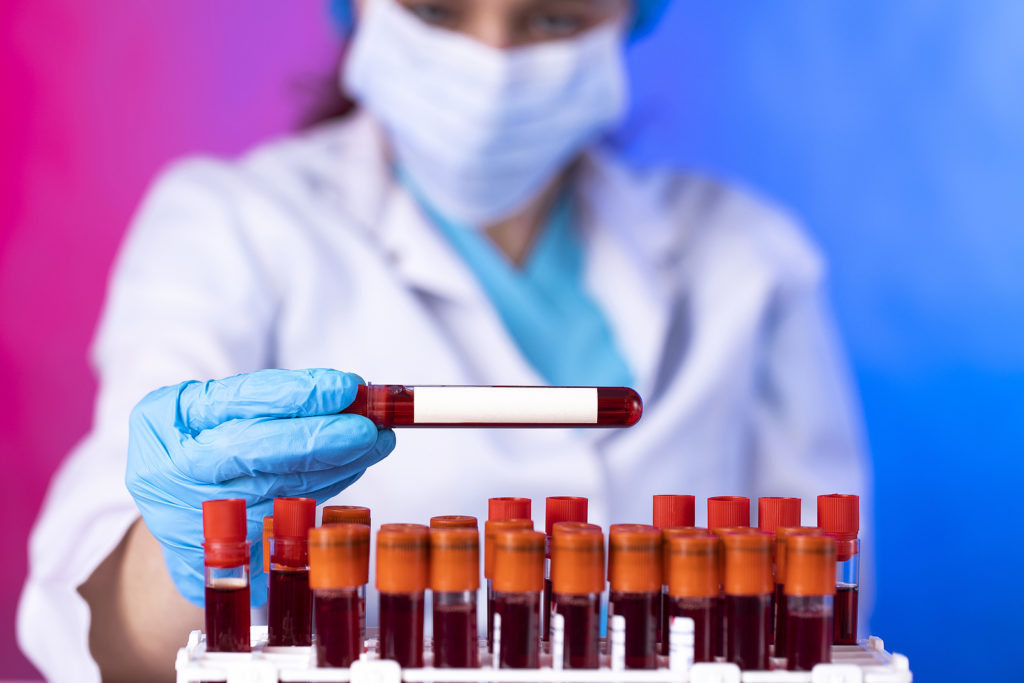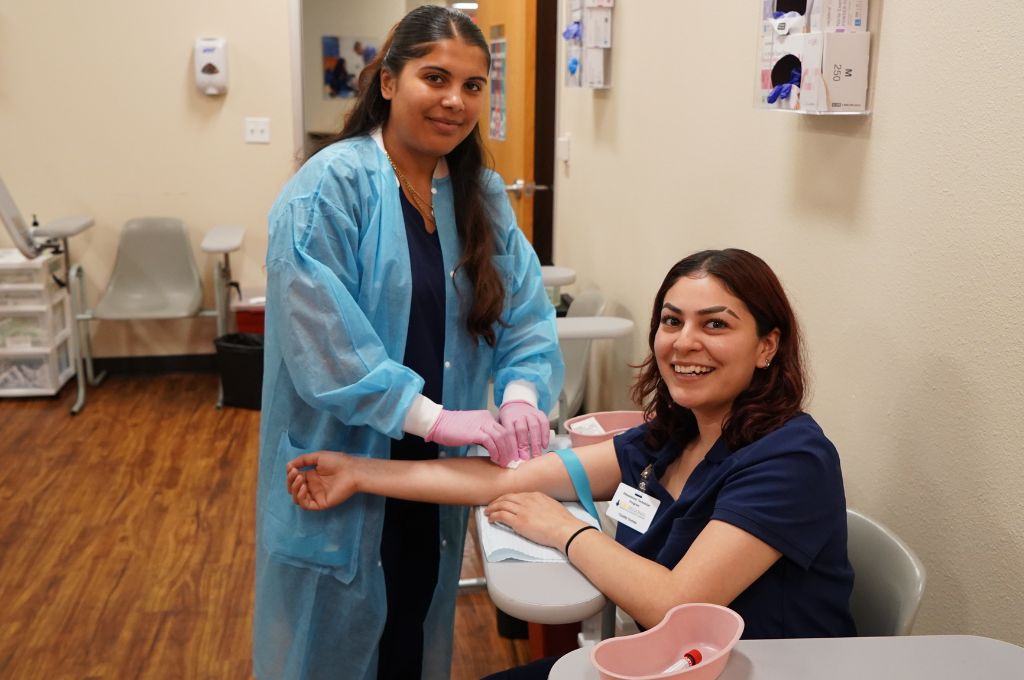Phlebotomy school Success: How to Thrive
Phlebotomy school Success: How to Thrive
Blog Article
The Path to Accreditation: Recognizing the Phlebotomy Educating Course Journey and Its Value
As you take into consideration the course to certification in phlebotomy, it's crucial to recognize the role you'll play in health care. Your training will certainly cover vital skills, from blood collection methods to patient communication.

The Function of Phlebotomists in Health Care
Phlebotomists play an essential duty in the medical care system, acting as the important web link in between individuals and important analysis testing. You'll do blood draws, making sure samples are accumulated precisely and safely. Your knowledge helps in identifying medical problems, keeping track of health, and directing therapy decisions.
In your everyday communications, you'll need to develop trust with clients, making them really feel comfy during what may be a stressful experience. You are in charge of labeling and taking care of samples very carefully to avoid contamination or errors, which can affect examination outcomes.
Yet, you'll typically function together with doctors and nurses, connecting crucial info about people' problems. Your duty is essential in preserving the process in medical care settings, guaranteeing timely and accurate outcomes. By understanding your abilities, you add meaningfully to patient care, making you a vital component of the clinical group. Accepting this obligation is vital to your success as a phlebotomist.
Overview of Phlebotomy Training Programs
When exploring phlebotomy training programs, you'll find different types developed to fit various routines and learning styles. Each program assists you establish essential abilities like blood collection and patient interaction. Recognizing these alternatives is key to picking the appropriate path for your profession.
Sorts Of Training Programs
Several types of training programs are readily available for those looking to become competent in phlebotomy. You can pick from certificate programs, which generally last a few months and focus on important skills. There are additionally diploma programs that provide a more thorough education and learning, frequently lasting up to a year. If you're looking for a deeper understanding, an associate level in an associated area may be the ideal fit. On the internet programs offer flexibility for those stabilizing job or household commitments, enabling you to study at your own pace. Additionally, some medical facilities and centers provide on-the-job training programs, supplying sensible experience while you find out. Whatever course you select, each program aims to outfit you with the needed skills for an effective phlebotomy profession.

Secret Abilities Developed
Grasping phlebotomy calls for a collection of essential abilities that are developed with detailed training programs. You'll discover technological skills like correct vein choice, needle insertion, and blood collection methods. These hands-on practices ensure you can perform treatments safely and successfully. Furthermore, interaction abilities are essential; you'll need to communicate with patients, discuss procedures, and put them at simplicity. Comprehending composition and physiology is vital, as well, as it aids you locate veins and recognize the body's reaction to blood attracts. You'll get knowledge of safety methods and infection control, guaranteeing you maintain a clean and sterile atmosphere. Each of these skills is crucial for your success as a licensed phlebotomist, making you an important property in any type of healthcare setup.
Key Elements of a Phlebotomy Program
In a phlebotomy course, you'll concentrate on important subjects that lay the groundwork for your future occupation. You'll participate in hands-on training that permits you to use what you've learned in real-world settings. Both the curriculum and useful experience are vital for your success as a phlebotomist.
Core Curriculum Introduction
While pursuing a phlebotomy training program, you'll experience a core curriculum made to furnish you with basic skills and knowledge. Phlebotomy school. This educational program normally includes anatomy and physiology, focusing on the circulatory system and recognizing blood elements. You'll also find out about different kinds of blood collection approaches, consisting of venipuncture and capillary leak techniques
Furthermore, infection control and security protocols are important components, guaranteeing you recognize exactly how to keep a clean and sterile setting. You'll research patient communication, highlighting communication and empathy, which are crucial for relieving client stress and anxiety.
Hands-On Training Experience
Obtaining hands-on experience is an indispensable part of your phlebotomy training course. This practical training permits you to use what you have actually found out in a real-world setup, boosting your abilities and self-confidence. You'll exercise venipuncture strategies, find out exactly how to deal with various kinds of specimens, and get aware of the equipment made use of in the field. Under the advice of experienced instructors, you'll improve your skills, ensuring you're gotten ready for any type of scenario you could encounter.
In addition, you'll get the possibility to interact with clients, which is essential for establishing your interaction skills. This combination of technological effectiveness and interpersonal abilities is critical for your success as a licensed phlebotomist. Inevitably, hands-on training is where theory satisfies technique, strengthening your knowledge and readiness for qualification.
Qualification and Licensing Requirements
Before you can begin your job in phlebotomy, it is vital to comprehend the accreditation and licensing needs that differ by state. Most states need phlebotomists to hold a qualification from a recognized organization, such as the National Phlebotomy Organization or the American Culture for Clinical Pathology. These certifications normally entail passing an exam that evaluates your understanding and skills in the field.
In addition to accreditation, some states have certain licensing demands. You might need to complete a specific variety of hours in scientific technique, send evidence of training, or undertake a history check. It is essential to research your state's policies to ensure you satisfy all needed standards.
Remaining informed about these requirements not only assists you protect a setting however likewise improves your reputation as a professional. By satisfying these requirements, you'll be well on your way to a successful job in phlebotomy.
Hands-On Training and Practical Experience
Hands-on training and sensible experience are essential components of your phlebotomy education, as they allow you to apply theoretical knowledge in real-world circumstances. During your training, you'll participate in monitored venipuncture, Phlebotomy Training Course find out correct techniques, and come to be accustomed to various blood collection tools. This straight involvement is critical for constructing your confidence and honing your abilities.
You'll work very closely with skilled professionals that can guide you via the nuances of client communication and sample handling. Each practice not just reinforces your understanding yet likewise prepares you for the busy atmosphere of healthcare setups.
Additionally, lots of programs integrate clinical turnings, enabling you to experience varied setups, from health centers to outpatient clinics. This direct exposure assists you adjust to various difficulties and patient requirements, guaranteeing you're well-prepared for your future function. Embrace these possibilities, as they're important to becoming a competent and thoughtful phlebotomist.
Challenges Faced During Training
While getting hands-on experience is important, it's essential to acknowledge the difficulties that can emerge throughout your phlebotomy training. In addition, understanding the abilities needed for blood attracts takes technique; you might battle with strategy originally.
Time monitoring can additionally be a difficulty, as harmonizing concept, functional sessions, and individual dedications can feel challenging. You may face varying learning rates amongst your peers, leading to sensations of insecurity if you believe you're falling back. Lastly, adjusting to the different personalities of instructors can be challenging, as each might have an unique teaching design.
Acknowledging these challenges early can prepare you for success and assist you create strength throughout your training trip.
Job Opportunities After Qualification

As you acquire experience, you may even consider specializing in areas like pediatric or geriatric phlebotomy, providing to details individual demands. Some phlebotomists choose to advance their careers by coming to be lab specialists or seeking more education in medical care fields.
In addition, your accreditation can cause roles in training or managing new phlebotomists, permitting you to share your knowledge. With the medical care industry constantly expanding, your skills will certainly constantly be in demand, leading the way for a steady and satisfying job. Accept the possibilities awaiting you!
Frequently Asked Inquiries
What Is the Typical Period of a Phlebotomy Educating Training Course?
Phlebotomy training programs typically last around four to eight weeks. You'll take part in hands-on practice, classroom instruction, and online discovering. Finishing this training prepares you for qualification and a rewarding profession in health care.
Are Online Phlebotomy Courses Available?
Yes, on-line phlebotomy courses are available. They provide adaptability and convenience, allowing you to examine at your very own speed. Simply validate the program is accredited to satisfy accreditation needs and get useful abilities for your job.
Just How Much Does Phlebotomy Training Usually Expense?
Phlebotomy training normally sets you back in between $700 and $2,500, depending on the program and place. You need to take into consideration elements like program size, consisted of products, and hands-on experience when selecting the ideal training for you.
What Are Common Requirements for Phlebotomy Training?
Typical prerequisites for phlebotomy training frequently include a senior high school diploma or GED, immunizations, and a history check. Some programs may also call for fundamental healthcare knowledge or qualifications, ensuring you're prepared for hands-on training.
Can I Function While Finishing My Phlebotomy Training?
Yes, you can function while finishing your phlebotomy training. Lots of students balance work with their studies, however make sure to manage your time properly to guarantee you meet both job and training commitments successfully.
Report this page